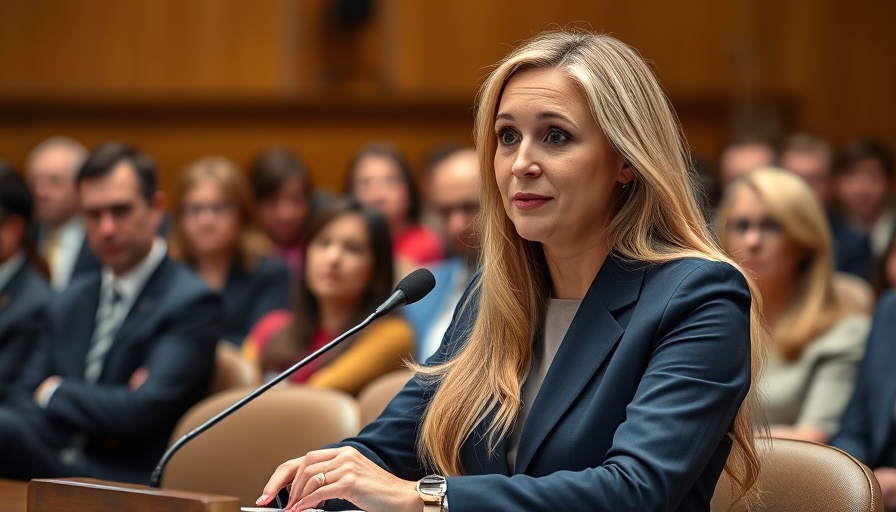
A Historic Moment for Women in the Judiciary
In an unprecedented move for North Carolina, attorney Susan C. Rodriguez is on the cusp of making history as the first woman appointed as a federal district court judge in the state’s Western District. Once confirmed, Rodriguez will join a relatively sparse roster of women in federal judicial positions—an arena long dominated by male counterparts. This historic nomination by President Donald Trump is timely, creating the potential for a fresh perspective in a court currently managing a backlog of cases.
Trailblazing Legacies: A Glance at Woman's Impact on the Judiciary
The journey of women in law and the judiciary of North Carolina has been a gradual climb filled with milestones. As recently noted in history, Louise Flanagan became North Carolina’s first female federal judge in 2003, paving the way for others like Rodriguez today. This ongoing progress not only highlights the evolution of female representation in legal professions but also inspires a younger generation of women who aspire to break similar barriers.
The Story Behind the Nomination: Rodriguez's Rise
Rodriguez, who graduated from George Mason University, has woven her career through various legal avenues, from clerking for the esteemed Judge Frank Whitney to co-leading McGuireWoods LLP's financial institutions team. Her dedication to the law and community is seared into her persona—reflected in her thoughtful actions towards some of Charlotte's underprivileged residents. As colleague Jodie Lawson noted, Rodriguez possesses a compassionate character in addition to her impressive legal acumen, providing a perfect blend for someone poised to serve in the judiciary.
What This Means for the Community
For residents of Charlotte, this arrival of a female voice on the federal bench represents more than just a historical appointment; it symbolizes progress toward equity in judiciary representation. As Charlotte evolves into a vibrant metropolitan hub, the infusion of diverse perspectives at the judicial level can only enhance the fabric of legal decision-making, reflecting community values and inclusivity.
Future Implications and Opportunities
The acknowledgment of barriers broken in the courtroom opens doors for more diversity, encouraging aspiring female attorneys to aim for the heights of judiciary power. Rodriguez's potential confirmation can set a precedent for future nominees, which may eventually lead to a more balanced judicial system that resonates with the demographics of the parties it serves. This shift toward inclusivity not only inspires individuals within the legal profession but also aligns with broader discussions around gender equity across various sectors.
As North Carolinians, embracing this change can mean actively supporting our community's movements towards diversity, equity, and social justice. The opportunity to witness this historical moment reinforces the essence of Charlotte's growing identity—a community advancing toward progress.
If you enjoyed this story, why not stay connected? Join Charlotte Local Unplugged on Facebook and YouTube for exclusive local information.
 Add Row
Add Row  Add
Add 




Write A Comment